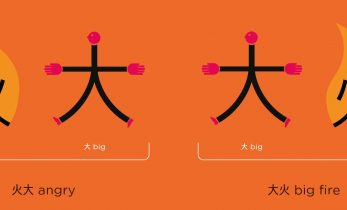Greater than 3 minutes, my friend!
Endangered Languages
The Manx language lives! Declared dead in 2009, its revival is the ultimate story of survival against the odds. Manx is the language of the Isle of Man, which lies in the Irish Sea between Ireland and Great Britain. Its population is around 85,000. Its history reaches back thousands of years. Its future looks healthy. Its culture is thriving. Key to the success is an elementary school that teaches almost entirely in the Manx language. In 2009 seventy young pupils wrote to Unesco’s Atlas of the World Languages in Danger asking: “If our language is extinct then what language are we writing in?” Unesco changed the classification to “critically endangered” and today there are over 1,800 people who can speak, read and write in Manx.
Endangered languages are an issue of urgent concern these days, involving efforts by academia, corporate business and countless individuals across the globe. When we look at the staggering number of results returned on almost any search argument containing the words ‘language,’ ‘culture’ or ‘communication,’ it is clear just how important these aspects of life are to humanity. While conflict and destruction still make headline-grabbing news, our interest in life outside the confines of our own borders is vigorous. Technology now offers unprecedented capabilities to connect with our fellow beings far and wide. Languages that are endangered inspire action. Together these elements result in a boundless enthusiasm for preserving a common heritage.
If you Google ‘endangered languages,’ a list of close to a million hits is returned. A quick survey of the top results reveals a number of organizations involved in this conservation movement. A second glance reveals that while these bodies share some common characteristics, there is also some impressive diversity among them. UNESCO offers a rich body of information on endangered languages including an atlas. The Linguistic Society of America is a science-oriented organization founded in 1924 to advance the scientific study of language and among many other topics is concerned with endangered languages. ELCat, Endangered Language Catalogue, is an online collaborative effort to protect global linguistic diversity. The Ethnologue is the most extensive list of the world’s languages. The Endangered Languages Project, supported by Google amongst others, is a humanitarian, global enterprise providing vast resources to all endangered languages. At the other end of the scale, we find sites dedicated to assuring the survival of individual native languages such as Lakota, Sioux and Cherokee. We even find an organization, thriving it seems, dedicated to the revival of Latin.
Work with endangered languages really does seem to ignite passions in a very diverse group of people. It’s illuminating to observe an activist approach being used in conjunction with scientific investigation. The normally dispassionate approach of scientists, schooled in the use of facts and methods, counterbalances such qualities as the feel-good factor, cultural pride, history and so on. It’s also very gratifying to discover how important institutional and corporate support are as well as individual support in this endeavor. There is an unmistakable sense of will in communities of remaining speakers to survive and revive and revitalize languages. I wonder if we are even encroaching on the territory of human rights here? Endangered languages certainly bring out the best in those who become involved in the cause. With scientific endeavor, cultural imperatives and technical savvy all being harnessed, this surely stresses the benefit of communicating globally.
On the complete opposite spectrum of extinct languages are those few which may not be spoken today but are extensively studied and researched by scholars and academics, like Latin, Ancient Greek, Sanskrit, Old and Middle English. These languages survived and are still thriving because all the writings are representative of an extremely rich heritage still relevant today. We still laugh at Aristophanes’ comedies, even though they are translated. We are still fascinated by Arthur’s knights and tales of dragons. Beowulf’s adventures and its terrorizing monster still frightens us. We still search for the hidden truths and timeless wisdom in the Bhagavat-Gita. Unlike these well-documented treasures of our culture, all the smaller communities need urgent help in documenting and preserving their epic tales, wisdom sayings and cultural heritage.
All things must pass, but the instinct for survival reminds us that putting up a fight for the survival of our languages is what makes us human, all too human.




